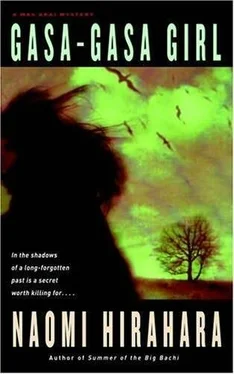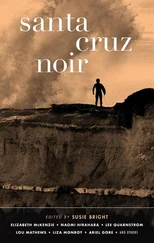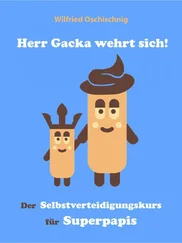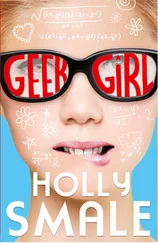Mas swallowed and prepared to cast his line. In lake fishing, you waited to see ripples on the surface of the water. Mas thought he saw some movement in Larry’s mind, and lowered the bait. “Yah, Waxley Garden. Don’t think Takeo should be involve-too danger, you knowsu, with Mr. Ouchi’s death and all.”
“I understand, Mr. Arai. I completely understand.”
“So I’m tellin’ Lloyd and Mari, get Takeo outta there.”
“I think it would be for the best.” Larry smiled wide for the first time for Mas. His smile was a dazzling white, as if he had used a bottle of Clorox to bleach his teeth. The cologne, the white teeth, what was real about Larry Pauley? Mas thought that it might lie in that hint of a tattoo.
Larry went on to say that he would be more than happy to assist Mas in any way, because it was Takeo’s welfare they were thinking about, yes? Mas nodded like a Tommy Lasorda bobble-head doll, a big grin pasted on his face. He was glad there were no mirrors in Larry’s office, or else he would be making himself sick at this point. Larry didn’t want Takeo and probably Lloyd to have anything to do with the garden. The question was, why? Larry finally said that he had another appointment to go to, so Mas rose from the chair.
“Youzu goin’ ova to memorial service?” Mas asked.
“Unfortunately, I won’t be able to make it,” said Larry without a tinge of regret.
Before Mas left the office, he turned to Larry. “Mr. Ouchi not a track man,” Mas stated more than questioned.
“Kazzy? Are you kidding me? His Highness would never rub elbows with commoners.”
***
Mas went back to the sidewalk, only to find the Cadillac gone. Tug was not around, either. A few minutes later, Tug appeared. “You didn’t tell me that Mr. Ouchi’s memorial service is today, Mas.”
“Yah, I forget.”
“So Phillip was in a rush to leave. He was pretty upset to hear that I was a friend of yours. I told him that I meant no harm, that I was sorry about his father’s death. He didn’t look too good.”
Tug explained that Ouchi Silk was on the fifth floor of the metallic building. “I think they are downsizing, because half of the offices were vacant. They must be having economic troubles.” Mas remembered how Tug’s son, Joe, was going through the same thing at his job back in California. This downsizing was an epidemic.
“ Warukatta. Sorry I putcha in a bad position.”
“No problem, Mas. That’s just part of the job.”
What job? Mas wondered. Since retiring, Tug had devoted himself to fixing broken objects in his house and Mas’s. It was obvious that he was now trying to fix broken people.
Even on the train ride back to Brooklyn Heights, Tug wasn’t acting himself. A man entered the train car holding a carton of chocolates. Mas didn’t give it a second thought. Everyone was selling something in New York, and subway passengers were a captive audience. Even the homeless stood up in the train car, sharing their woes and tribulations so eloquently that Mas was almost moved to place a buck in their empty hats. Almost moved, but not quite.
Now the chocolate seller was making his spiel. “My church is hoping to get your support. We are a small church, no building to speak of, but we have the spirit inside of us,” he said, pacing the length of the car and holding up 100 Grand and Nestlé Crunch bars.
The man was selling a load of garbage, but Mas was surprised to see Tug taking two dollars out of his wallet and giving it to the man for two 100 Grand bars. Tug handed a candy bar to Mas.
“Could be poison, Tug,” Mas warned.
“Let’s live dangerously,” Tug said, tearing off the wrapper.
“ Orai, ” said Mas. He sensed that Tug, away from Lil for the first time in a long while, was transforming into a rebellious teenager. There was a Japanese term, heso magari, that mothers called such children. Heso meant belly button; magari, crooked. In New York City, Tug’s belly button was moving away from the middle.
“Go for broke,” Tug said before taking a large bite.
***
The 100 Grand bars didn’t kill them, but gave Mas a mean stomachache. It was from not eating all day, Mas figured. And at least the stomachache somehow lessened the pain in his hand and lower back. Tug had purchased a fancy Brooklyn Heights map and had highlighted their path to the last flower shop, one with a fancy French name.
“This place reminds me of Paris,” Tug said as they neared the corner storefront. Sometimes Mas took Tug for granted and thought of him as a simple man whose most worldly adventures went as far as discovering cockroach infestation in an all-you-can-eat buffet. But Tug had actually been to exotic places like Rome and Paris, Mas had to remind himself.
The shop was painted a golden yellow, with upside-down bouquets of dried flowers hanging from the ceiling like whisk brooms. On the floor sat cement angels and rabbits in between baskets of ribbon and vases of pink and lavender tulips. A fresh-faced girl stood behind the counter, her blond hair tied back in a high ponytail.
Tug licked his lips. “Let me take the lead on this,” he said. Mas clutched his belly, happy to oblige.
“Hello, can I help you?” Even though it was past lunchtime, the girl was enthusiastic. Must be new at this, thought Mas.
“Ah, actually, I was referred to you by Happy Ikeda, you know, of Happy’s Floral Design in Midtown?” Tug said.
The girl looked blankly at Tug. Mas guessed that Happy’s name didn’t have much weight in the fifty-and-under crowd.
“Anyway, I know that you order Mystery Gardenias from California. San Juan Capistrano, in fact.”
“Oh, yeah.” The girl became more animated. “They are so beautiful. Gigantic ones.”
“Yes, well, I know that this is a strange request. But do you have records on who bought any of those gardenias on Wednesday, Thursday?”
“Why?”
“Well, you see”-Mas cowered to see what Tug was going to come up with next-“we’re investigating a murder.”
“Murder?” The girl looked him up and down. She seemed to take note of Tug’s well-kept beard, his button-down shirt, the casual yet expensive designer jacket his kids had most likely purchased him for Christmas. Good thing she couldn’t see Tug’s bargain tennis shoes. Then her eyes moved to Mas.
Tug quickly displayed something from his wallet. “I’m an investigator,” he said, and then pointed at Mas. “This is Inspector Arai. From Japan. He doesn’t speak much English.”
Mas was ready to protest, but then thought better of it. Tug was pretty sly when he wanted to be. This way Mas didn’t have to open his mouth and make fools out of both of them.
The girl waited.
“Kazzy Ouchi,” Tug said. No reaction from the girl. “His death was in the paper.”
Unfortunately, youngsters didn’t read newspapers, much less the Post tabloid.
“Anyway, he has international connections. Both here and in Japan.”
“Wow,” the girl said, her mouth partially open, revealing chewed gum on her pink tongue.
“So, I’m sure that you would want to assist in the investigation.”
“What does this have to do with gardenias?”
“One was left at the crime scene.”
“How do you know that it was a gardenia from our shop?”
“Forensics,” Tug said. “We have advanced research laboratories.”
“Well.” The girl played with the keys of her computer, which probably doubled as the cash register. “I’ll have to check with my boss.”
“There’s no time for that,” Tug said. His voice took on an official tone like workers at government offices. Even Mas jumped slightly, recalling the way he had been treated at the Department of Motor Vehicles and Social Security offices. After forty years of loyal work with Los Angeles County, Tug had fully adopted the required attitude.
Читать дальше












